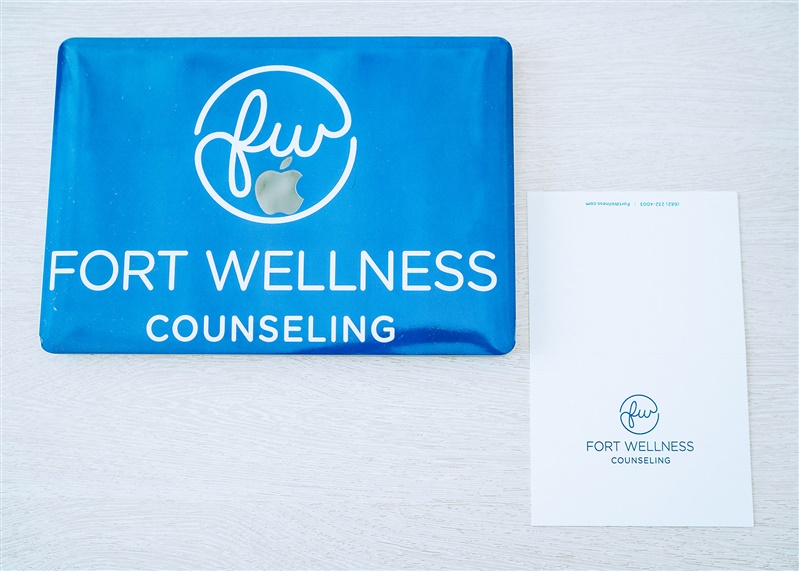
Family Vacations & Your Mental Peace: Strategies for Stress-Free Summer Travel
Family Vacations & Your Mental Peace: Strategies for Stress-Free Summer Travel By: Rane Wallace, MS, LPC, LCDC, SAP Of course, traveling with your family is

With Thanksgiving coming to a close, we thought it was fitting to explore the link between gratitude and mental well-being. From gratitude journaling to evening prayers, this practice can mean different things to different people. But regardless of what it looks like for you, gratitude plays a significant role in mental health. Stay tuned, as we’re revealing the top 12 benefits of gratitude in today’s blog post.
Curious how gratitude impacts your everyday life? Below are the top 12 benefits of gratitude practice:
There are many factors that contribute to positive mental health. However, gratitude is one of the best. Take this 2020 study for example – it demonstrated how regular gratitude practice can ease symptoms of anxiety and depression.
Furthermore, this 2008 study found that gratitude can boot the neurotransmitter serotonin and activates the brain stem to produce dopamine. Dopamine is also known as our brain’s pleasure chemical. We can feel happier by having more grateful thoughts. Science has proven that gratitude is helpful for improving your mental health.
It’s no secret that gratitude contributes to an overall sense of well-being. However, this research review revealed that stress can lower the body’s immune response to potential threats. The study also found that mental well-being can ward off illness. And gratitude is a terrific supporter of mental health.
In addition to your mental and physical health, practicing gratitude can improve your relationships. Not only will it help form lasting relationships, but it will strengthen your existing ones. Gratitude enhances romantic relationships especially, as partners feel more satisfied with one another.
Did you know that optimistic people are more likely to age healthier? And if you’re not naturally optimistic (which is a lot of us), gratitude journaling and practicing optimism can help cultivate a more optimistic outlook.
Believe it or not, writing in a gratitude journal improves sleep habits. All it takes is 15 minutes of jotting down some grateful sentiments (preferably before bed) to sleep better and longer. If you aren’t sure how to get started, these gratitude journaling prompts will guide you:
The society we live in makes self-esteem difficult at times. However, it is essential to function at our best. Practicing gratitude reduces our social comparisons. And instead of resenting those who have more money (or better jobs or bigger houses or healthier relationships), it teaches us to appreciate others’ accomplishments.
Not only does gratitude reduce stress, but it helps us overcome trauma. Studies have shown that grateful war veterans experience lower rates of post-traumatic stress disorder (PTSD). Why? Recognizing all you have to be thankful for (even on the worst days of your life) fosters resilience.
Grateful people are less likely to retaliate against others (even when they aren’t-so-kind). When facing negative feedback (or any kind of feedback, for that matter), grateful people experience more sensitivity and empathy. Additionally, they don’t have as strong a desire for revenge.
Ready for a shocker? Gratitude makes people like us. Regularly practicing gratitude makes us nicer, more trusting, more sociable, and more appreciative. The result? Grateful people make more friends, deepen their existing relationships, and improve their partnerships. Therefore, they have more social capital than their ungrateful counterparts.
Gratitude supports managerial skills, as well as networking abilities, decision-making capabilities, productivity, and finding mentors/protegees. Therefore, regularly practicing gratitude can help achieve career goals. Of course, it also makes the workplace a more enjoyable place to be.
To some degree, to be human is to be self-centered. However, gratitude practice shifts our focus away from ourselves and our problems. That way, it’s easier to fixate on the benevolence of others.
Finally, the last of the 12 benefits of gratitude is its ability to skyrocket our energy levels. Gratitude strongly correlates with both physical and mental vitality. Therefore, grateful people are more likely to respond with vigor. This also applies to physicality, as grateful people exercise more regularly.
Fort Wellness Counseling is home to one of Fort Worth’s Top Three Therapists. That means we’ve coached hundreds of people through gratitude practice and its benefits in their lives. Hopefully, this blog post was able to offer a glimpse into the top 12 benefits of gratitude and how gratitude can help you.
If you are experiencing anxiety, shame, or depression, gratitude journaling can offer some relief. However, the best way to overcome a mental health hurdle is to speak directly with a licensed counselor or therapist.
If this is something you’d be interested in, give us a call or book your appointment online today. We’d love to see if our practitioners are a good fit for you.

Family Vacations & Your Mental Peace: Strategies for Stress-Free Summer Travel By: Rane Wallace, MS, LPC, LCDC, SAP Of course, traveling with your family is

Mental Health 101: Debunking Common Myths By: Rane Wallace, MS, LPC, LCDC, SAP Every May, Mental Health Awareness Month raises awareness and advocacy for people

Medical Trauma: Understanding and Healing from Difficult Healthcare Experiences By: Rane Wallace, MS, LPC, LCDC, SAP Over the years, I’ve come to understand that for

Social Media Depression: Beyond FOMO to Algorithm-Induced Mood Change By: Rane Wallace, MS, LPC, LCDC, SAP I’ve seen this happen so many times with patients,

How to Wind Down at Night: Simple Sleep Hygiene Tips By: Rane Wallace, MS, LPC, LCDC, SAP Sleep hygiene might sound like a fancy term,

Pregnancy and Postpartum Anxiety Treatment in Fort Worth By: Rane Wallace, MS, LPC, LCDC, SAP Have you or a loved one experienced anxiety during pregnancy

Breaking the ‘New Year, New Me’ Mindset: A Guide to Sustainable Change By: Rane Wallace, MS, LPC, LCDC, SAP In my years as a therapist,

How to Support a Partner with Chronic Illness: A Mental Health Perspective By: Rane Wallace, MS, LPC, LCDC, SAP Living with a chronic illness can

EMDR for Attachment Issues: Building Healthy Relationships By: Rane Wallace, MS, LPC, LCDC, SAP When you hear “EMDR therapy” (Eye Movement Desensitization and Reprocessing), you

How to Deal with a Narcissistic Partner By: Rane Wallace, MS, LPC, LCDC, SAP Do you ever feel like your partner thinks they’re better than

How to Recover from Burnout By: Rane Wallace, MS, LPC, LCDC, SAP Burnout is a common struggle in today’s fast-paced world. Life’s relentless demands can

The Benefits of Attending Couples Counseling By: Rane Wallace, MS, LPC, LCDC, SAP There’s a misconception about couples counseling – that it signals the end

Things to Know About Individual Counseling in Fort Worth, TX By: Rane Wallace, MS, LPC, LCDC, SAP May is Mental Health Awareness Month, a good

Everything You Need to Know About EMDR Therapy By: Rane Wallace, MS, LPC, LCDC, SAP Have you heard about EMDR therapy and want to learn

What is Nature Therapy? (And Why You Should Be Doing It!) By: Rane Wallace, MS, LPC, LCDC, SAP Let’s face it: there’s just something about

The Benefits of Virtual Therapy in Texas By: Rane Wallace, MS, LPC, LCDC, SAP Technology is changing everything, and healthcare is no different! Thanks to

How to Get Over a Breakup By: Rane Wallace, MS, LPC, LCDC, SAP Breaking up with a romantic partner is painful – no matter the reason

How to Set New Year’s Resolutions By: Rane Wallace, MS, LPC, LCDC, SAP How to Set New Year’s Resolutions Setting goals gives us a sense

How to Cope with Holiday Stress By: Rane Wallace, MS, LPC, LCDC, SAP Say No to Prevent Burnout There are an abundance of obligations that

Trauma Therapy in Fort Worth: Types, Benefits & More By: Rane Wallace, MS, LPC, LCDC, SAP Believe it or not, an estimated 60% of men

How to Communicate Better in Relationships By: Rane Wallace, MS, LPC, LCDC, SAP Whether with coworkers or your significant other, the ability to communicate effectively

How to Prevent Seasonal Affective Disorder (SAD) By: Rane Wallace, MS, LPC, LCDC, SAP If you’re struggling with winter blues, know you’re not alone. SAD

What is a Functioning Alcoholic? By: Rane Wallace, MS, LPC, LCDC, SAP When someone is deemed a ‘high-functioning alcoholic,’ they’re able to carry out daily

How to Help Yourself – And Others – with Suicidal Ideation By: Rane Wallace, MS, LPC, LCDC, SAP September is Suicide Awareness Month. And while

32 Questions to Strengthen Your Relationship By: Rane Wallace, MS, LPC, LCDC, SAP When was the last time you had a meaningful conversation with your

The Fawn Response: How Trauma Can Lead to People Pleasing By: Rane Wallace, MS, LPC, LCDC, SAP Do you often find yourself putting the needs

How to Overcome ‘Hangxiety’ (Post-Drinking Anxiety) By: Rane Wallace, MS, LPC, LCDC, SAP Thought the consequences of drinking heavily were merely physical? Unfortunately, you’ll have

What is Box Breathing? Plus Tips for Beginners By: Rane Wallace, MS, LPC, LCDC, SAP Ever heard of box breathing? This popular relaxation technique involves

Do Mindfulness Exercises for Anxiety Work? By: Rane Wallace, MS, LPC, LCDC, SAP Do mindfulness exercises for anxiety work? If you (or people in your

What is Trauma Bonding? 4 Warning Signs By: Rane Wallace, MS, LPC, LCDC, SAP If you’ve ever been in an abusive relationship and felt bonded

Why Do We Cry? 4 Reasons and Crying Benefits By: Rane Wallace, MS, LPC, LCDC, SAP There’s no getting around it – crying is part

What Is Habit Stacking? (And How to Do It) By: Rane Wallace, MS, LPC, LCDC, SAP Supporting our mental health is one of those goals

5 Tips for Living with Someone with OCD By: Rane Wallace, MS, LPC, LCDC, SAP While living with OCD (obsessive-compulsive disorder) can be demanding, living

What is Assertive Communication? By: Rane Wallace, MS, LPC, LCDC, SAP So, what is assertive communication? Well, in a nutshell, this communication style aims to

PTSD Counseling in Fort Worth: Proven Coping Strategies By: Rane Wallace, MS, LPC, LCDC, SAP For those who didn’t already know, post-traumatic stress disorder (PTSD)

Brainspotting vs. EMDR: What’s the Difference? By: Rane Wallace, MS, LPC, LCDC, SAP According to the National Council for Mental Wellbeing, 70% of American adults

Mindfulness Exercises to Strengthen Your Recovery By: Rane Wallace, MS, LPC, LCDC, SAP Are you recovering from alcohol and/or substance abuse? Self-improvement is a life-long

How to Find a Counselor in Fort Worth By: Rane Wallace, MS, LPC, LCDC, SAP Are you considering therapy? If so, finding a counselor in

How To Not Be Codependent In A Relationship By: Rane Wallace, MS, LPC, LCDC, SAP Wondering how to not be codependent in a relationship? Sometimes

What is Parental Anxiety? Coping Tips from a Therapist By: Rane Wallace, MS, LPC, LCDC, SAP Every parent wants to shield their child from danger

What is EMDR Therapy? By: Rane Wallace, MS, LPC, LCDC, SAP Ever heard of eye movement desensitization and reprocessing therapy? More commonly known as EMDR,

8 Proven Tips to Sleep Better at Night (and Improve Your Mental Health) By: Rane Wallace, MS, LPC, LCDC, SAP Struggling with restless nights and

How to Have a Healthy Relationship with Social Media By: Rane Wallace, MS, LPC, LCDC, SAP In today’s world, there’s no escaping the presence of

What Is The Goal of Psychotherapy? By: Rane Wallace, MS, LPC, LCDC, SAP Have you been considering psychotherapy? The start of a new year is

What is Brainspotting Therapy? By: Rane Wallace, MS, LPC, LCDC, SAP Brainspotting therapy is a kind of alternative therapy that is gaining immense popularity in